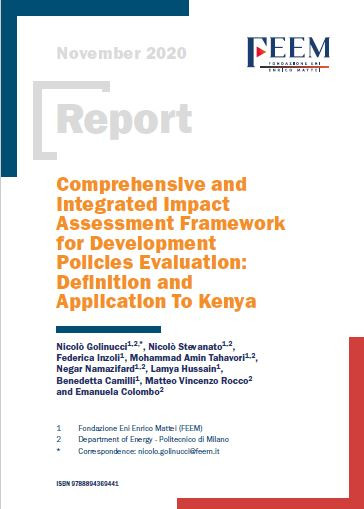Comprehensive and Integrated Impact Assessment Framework for Development Policies Evaluation: Definition and Application To Kenya

11.11.2020
Over the last decades, the interest and evidence for the numerous interconnections among energy, environment and society have acquired increased importance for the international community. Indeed, processes and relationships among countries are becoming global and evolving in a complex framework.
It is no more possible to consider development strategies without taking into account the whole system in its social and technological complexities. In the last decade, the recognized relevance of cross-sectoral interlinkages among economic sectors has driven research efforts towards deepening joint energy and economic modelling. Furthermore, the 2030 Development Agenda identifies energy access as a necessary precondition for human and social promotion, as well as an instrumental right to fight poverty.
Over the last decades, the interest and evidence for the numerous interconnections among energy, environment and society have acquired increased importance for the international community. Indeed, processes and relationships among countries are becoming global and evolving in a complex framework.
It is no more possible to consider development strategies without taking into account the whole system in its social and technological complexities. In the last decade, the recognized relevance of cross-sectoral interlinkages among economic sectors has driven research efforts towards deepening joint energy and economic modelling. Furthermore, the 2030 Development Agenda identifies energy access as a necessary precondition for human and social promotion, as well as an instrumental right to fight poverty.
